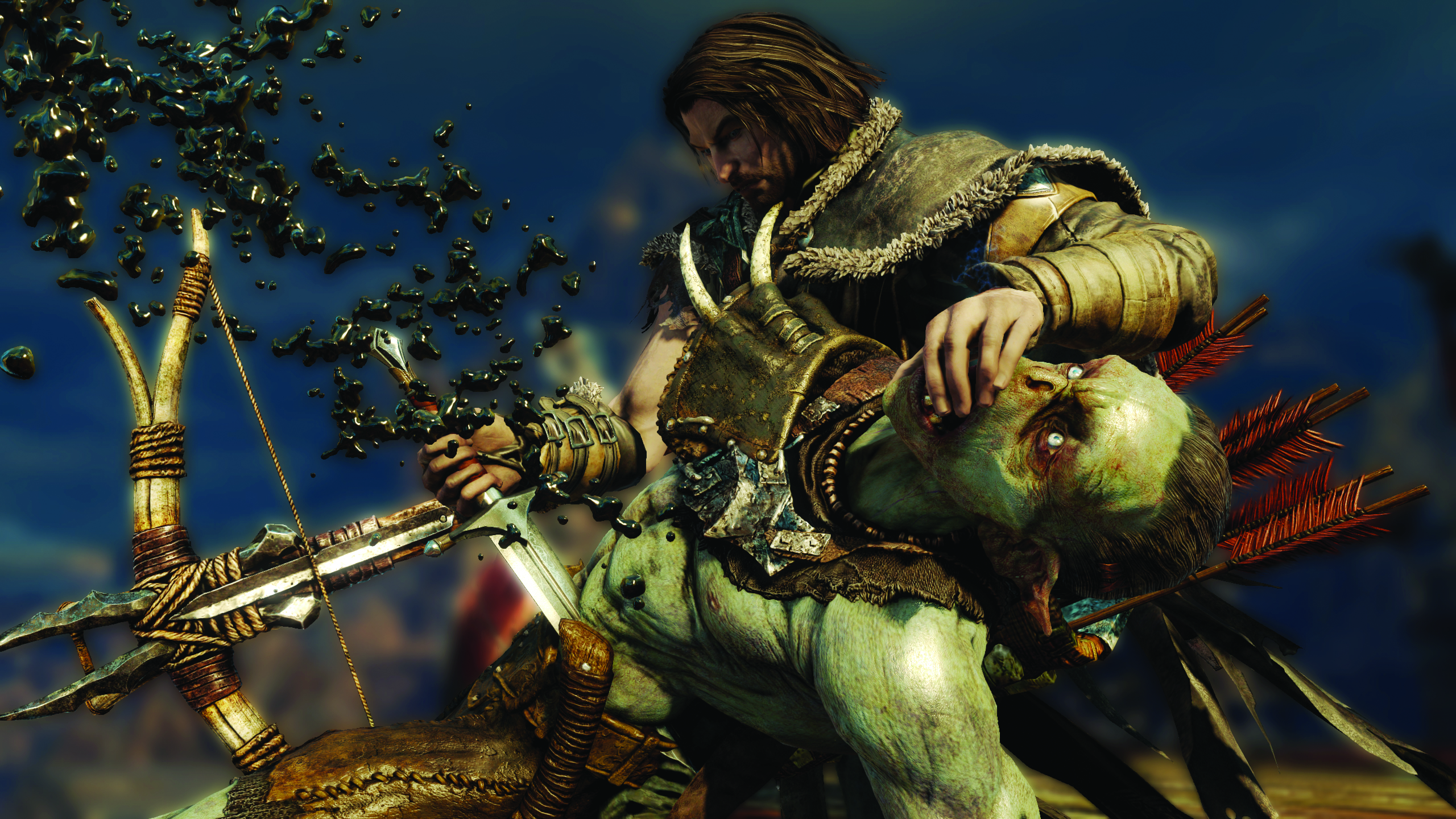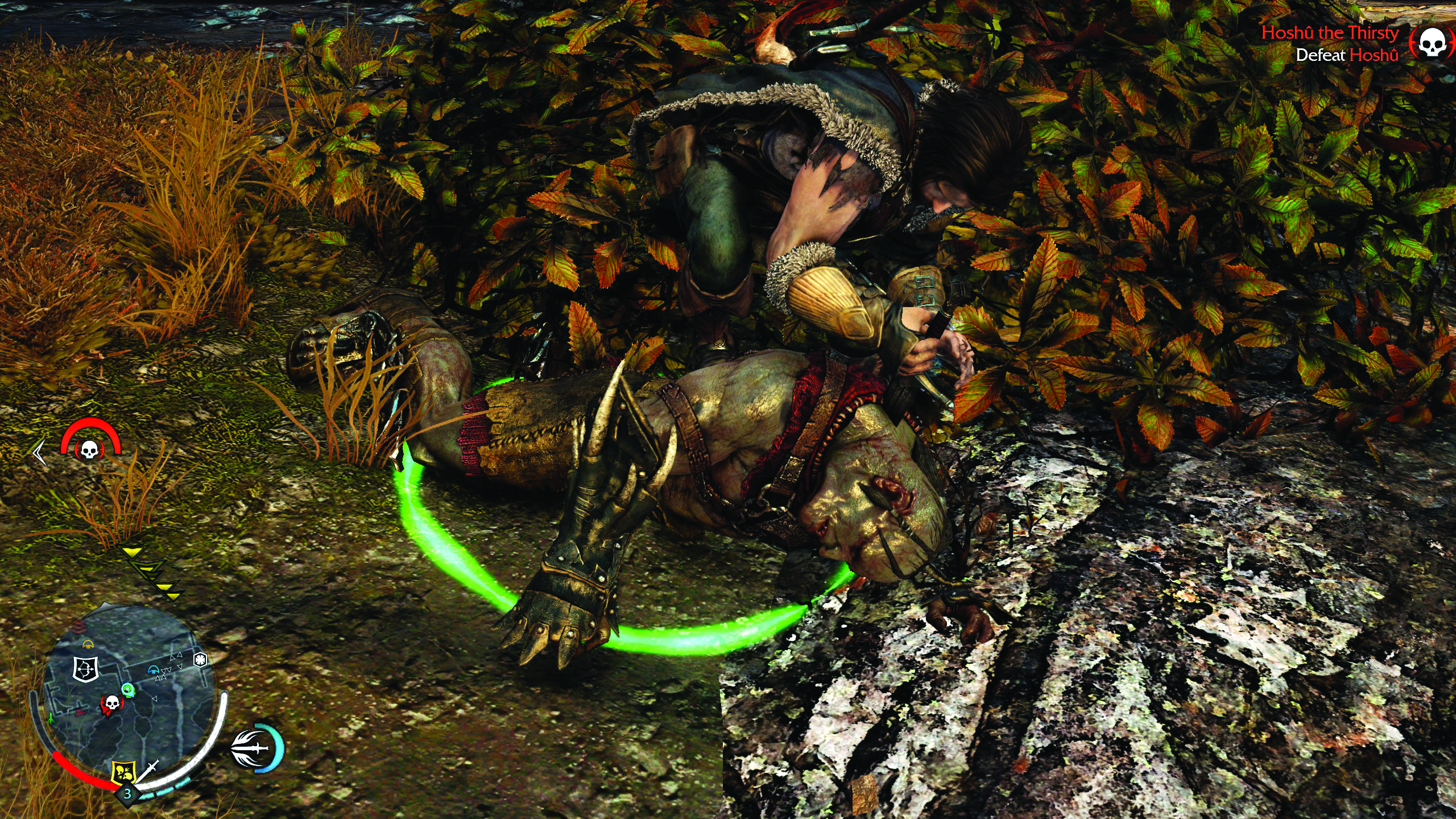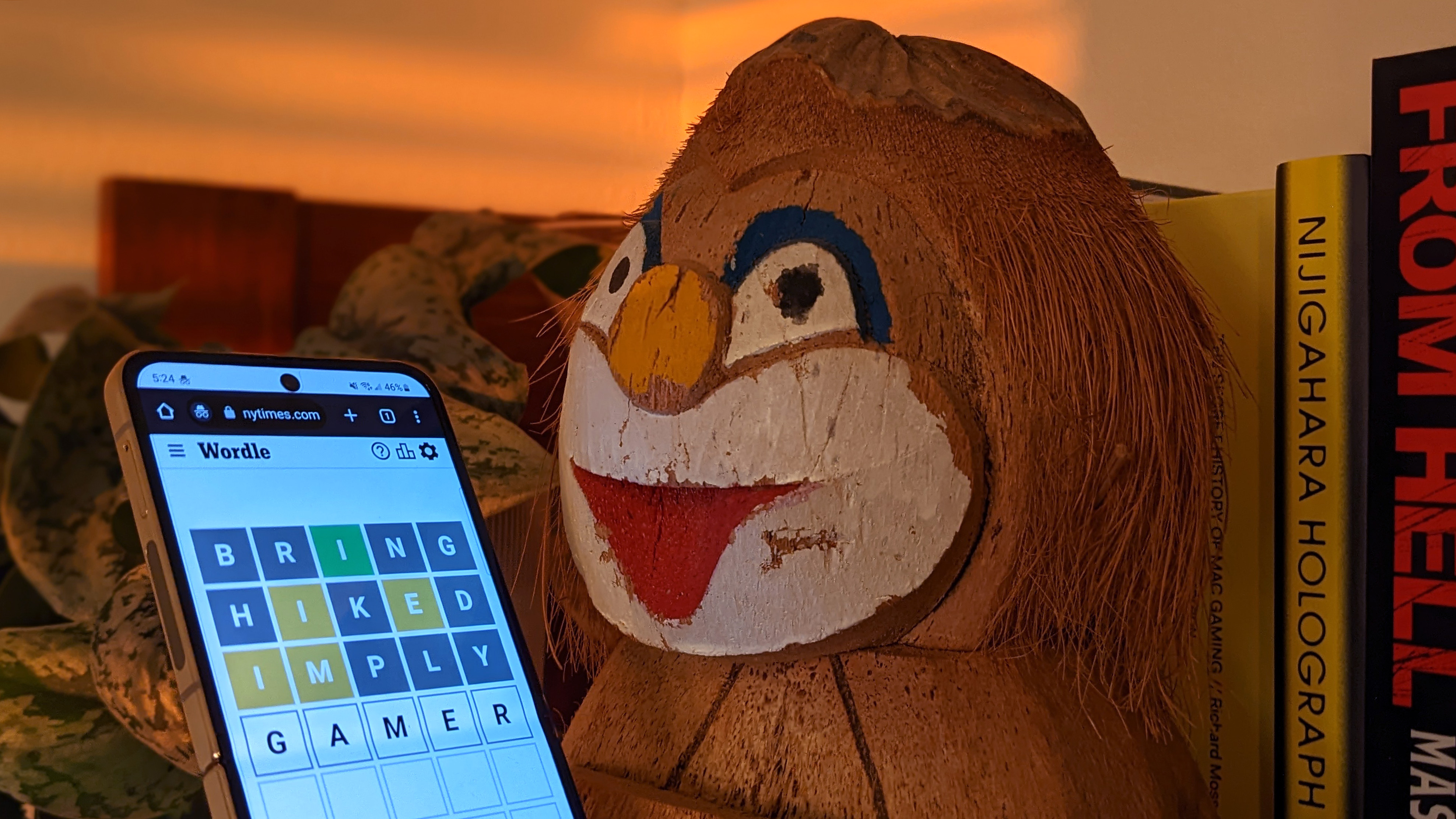
There are few gaming accomplishments more satisfying than the thrill of pulling off kills in stealth action games. The sweetest of feats can be achievements or timed runs or trick shots but there’s something extra special about a grudge kill. Shadow of Mordor, the Warner Bros. action game of 2014, was a factory for satisfying kills with its nemesis system that became the centre of any conversation about the game.
Reinstall
This article first appeared in PC Gamer magazine issue 393 in February 2024, as part of our Reinstall series. Every month we load up a beloved classic—and find out whether it holds up to our modern gaming sensibilities.
After recently working my way through other stealth romps like Styx: Master of Shadows and Hitman 3, I got the itch to return to one of the previous decade’s golden children to see if it’s everything I thought.
The way I remember Shadow of Mordor was as an understudy to Assassin’s Creed. It has tons of climbing, opportunities for silent kills, kills from above and all the other stabby stealth skills of classic Creed. Coming back to it, I was anticipating plenty of verticality, clutch kills using the environment, and some good melee combat when everything goes wrong.
I was partially right. I don’t think Shadow of Mordor’s world design and structures are all that much to write home about, unless I’m retroactively giving old Assassin’s Creed games more credit than they’re due too. Shadow of Mordor’s crumbling Middle-earth infrastructure is largely repetitive and none too intricate.
Climbing up ruins and creeping stealthily across ropes connecting them feels serviceable now, but pretty basic. There’s not too much puzzle or exploration in spidering up the side of the same broken stone arches all over the map. It’s a wide but not high map, structures and strongholds of a couple of stories evenly spaced out across the barren crags in the corner of Middle-earth.
The world itself felt grander at the time but doesn’t really inspire awe in this decade—like returning to a childhood playground and realising that I can reach up and touch the monkey bars that once seemed quite intimidating. Even though it doesn’t have the towering structures I’d remembered them as, the climbing and creeping across structures is still enjoyable. There’s some suspension of disbelief required in how easy it is for me to lose the attention of a horde of orcs just by scaling the opposite side of a stone wall, but it sure does make me feel stealthy to do it.
Sprinting across the rock landscapes and hauling up towers, jumping across gaps between buildings with ease and prancing along ropes connecting them is the kind of versatile traversal I was hoping for and that I got in spades.
Fight or flight

Even though the Middle-earth ruins city planning feels just passable, there’s still a lot of satisfaction in combat. The basics are initially repetitive—one button to swing Talion’s sword and another to aim his bow—but quickly get compounded as I unlock parries, vaulting over orcs’ heads, executions and finishing moves. It all weaves together about as well as I remember with only a little clunkiness to Talion’s general movement.
As I stalk towards the general location of an orc captain on my kill list, I’ll often begin by crouching in a patch of bushes, using a skill attached to my bow to lure away nearby uruks to pick them off. Inevitably I’ll miss one, and being spotted by one orc turns into fighting five or more of his cohort as they rush me simultaneously.
Those are the weaker moments of standard combat in Shadow of Mordor, getting surrounded and mobbed by a gaggle of stock baddies.
Those are the weaker moments of standard combat in Shadow of Mordor, getting surrounded and mobbed by a gaggle of stock baddies. There’s initially a little glee in whacking the orc in front of me, quickly parrying the one swinging at my back, and vaulting over another to continue the attack. But after about ten seconds it becomes clear that I can’t pull a finishing move on the orc I’ve downed because I’m constantly parrying another, which interrupts that kill. I’m surrounded by nearly dead orcs managing to just cover for one another all while arrows rain down from the one archer I didn’t pick off. In a fight between Talion and ten orc toddlers, the strength in numbers does eventually win out.
Those dogpiles become untenable, leaving me only one recourse: turning tail and running. Since those packs of gathered orcs don’t really disperse in a natural fashion, those failures to manage the crowd force me off to pick at some other fortress, hoping that the enemy AI will reset and settle while I’m away.
The times when I can keep a brawl with stock orcs to a headcount of three or four though—firing off a quick bow shot at the one running to raise the alarm, killing the one I’ve downed, and then snagging the final assailant in Talion’s ghostly grip to interrogate him for information about his captain—that’s the glory of Shadow of Mordor’s basic combat.
Killtacular

The part of Shadow of Mordor that’s barely aged is its nemesis system. Its method of creating and preying upon grudges became its defining feature when it launched and for good reason. The nemesis system still kills.
I hopped into a fresh save file of Shadow of Mordor and decided that my personal goal would be to kill as many orc captains in Sauron’s army as possible without ever letting them re-hire new talent. What main quest?
The part of Shadow of Mordor that’s barely aged is its nemesis system.
Sauron’s army has three tiers of orc captains who I can either stumble upon in the wild or pick off lesser orcs to learn their general location and eventually their strengths and weaknesses. If I ever die by their hand, those orcs get promoted up a tier and can gain additional strengths too. So I just won’t die. That’s the challenge I set myself.
I started my killing spree with the middle management of Sauron’s army, whichever orcs were hanging out nearby on the bottom rung of the ladder. The first three kills are easy enough—orc captains with small entourages milling about in crumbling ruins. I pick off their guards quickly and then take out each captain with a short sword fight and execution move.
The next captain throws a wrench in my plans. He’s got the Summoner trait, which lets him call for help when in danger. Thus my complaints about unwieldy mobs of orcs. After that, an orc captain I definitely killed seems to have come back from the dead, ambushing me as I’m stalking one of his higher-rank brethren saying that I gave him a scar, and sure enough his face has large pink sword marks. Each successive fight takes more work as I find captains clustered together at the same outpost, requiring much more finesse from my plans. Others have traits that make them fearful of certain attack types, forcing them to retreat and me on a chase to run them down.
This is where the stealth action of Mordor shines: the five minutes I spend casing a fortress for an orc captain who’s vulnerable to takedowns. I perch atop crumbling arches watching his entourage come and go, never leaving him fully open to my death-from-above leap. Eventually I had to decide whether I should flush him out by blowing up a nearby campfire and risk him running away, or dive right in the centre of his posse for that takedown I want so badly. I spend several hours at my task of orc captain eliminator without realising it. So I’d say that the nemesis system holds up well.
Patent trending
The success of the nemesis system naturally begs for other games using it as inspiration. And yet they haven’t. In 2021, after a few years of trying to get it approved, Warner Bros acquired a patent for “Nemesis characters, nemesis forts, social vendettas and followers in computer games,” the nemesis system as we know it. We’ve yet to see it legally enforced in any public fashion, but it did have a chilling effect.
Patented or not, I hope we’ll see takes on the nemesis system from outside Warner Bros. Even by another name, there’s excitement around evolving enemies. Until someone else takes the bait, Shadow of Mordor is worth returning to.
Source link






